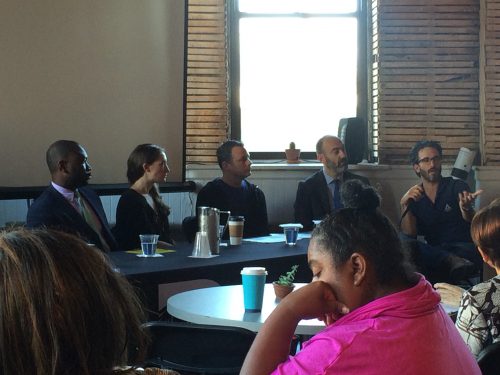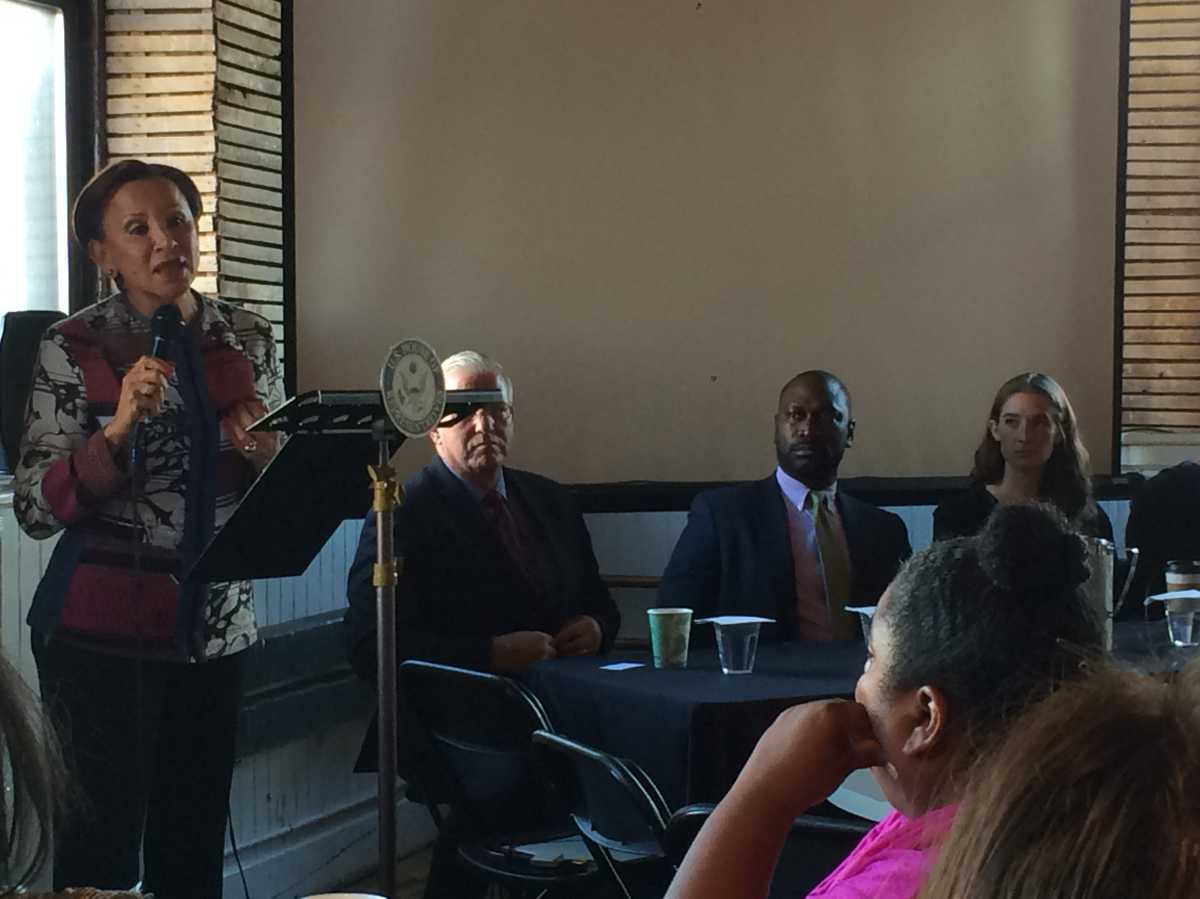Dozens of small business owners, local officials and residents joined together yesterday at the Old Can Factory in Gowanus to discuss the resiliency of small businesses in the five years since Superstorm Sandy.
The event, lead in partnership between Congresswoman Nydia Velazquez (D-Brooklyn, Queens, LES) and the Brooklyn Chamber of Commerce, addressed the lessons learned since Sandy, the progress of the federal recovery plan and the future of resiliency planning at the city, state and federal levels.
Superstorm Sandy hit New York City on Oct. 29 of 2012, causing upwards of $20 billion in flood damage to more than 23,000 business.

“We know that when a natural disaster strikes, that if city agencies and the federal government do not show up in a timely basis, a lot of these businesses will shut down their doors because if you don’t get the assistance that you need within three, four weeks, the probability of those businesses shutting down their doors are very high,” said Velazquez.
In July 2015, the U.S. Senate Committee on Small Business and Entrepreneurship approved legislation (S.1811) to assist small businesses impacted by Hurricane Sandy. The bill, S. 1811, was largely based on a measure that Velázquez authored that included a number of improvements to the Small Business Administration’s (SBA) disaster lending initiative, specifically allowing small businesses to re-apply for a disaster loan.
“It took us two Congresses to pass the Sandy Relief package. When Texas and Florida were hit it only took seven days. When natural disasters strike, we must show up. There can’t be Republican or Democratic nonsense. We must provide the resources our fellow citizens are entitled to,” added Velazquez.
Gregg Bishop, Commissioner of NYC Small Business Services, echoed these sentiments as he laid out the initial plan that the city used to help recovery efforts in 2012.
“After any natural disaster, a small business needs capital to recover. What we had to do was mobilize as a city, so the EDC [Economic Development Corporation] immediately committed $5 million dollars to a small fund that quickly became a fund of about $20 million after a match of $5 million from the private sector and another $10 million match from most of the banks in New York state. We were then able to give loans of $25,000 and $10,000 and help over 680 business and that immediate cash was what a lot of businesses credit with getting them to carry on after the federal program once the federal program kicked in, said Bishop.

Five years on, small businesses are still recovering from the devastation of the storm like Stephen Giumenta, Vice President & Design Engineer of Architectural Grille, in Gowanus, who suffered $7 million in damage to only receive a couple hundred thousand dollars in recovery money. However, Giumenta was still able to rebuild and claims that his company is now “99 percent back to normal.”
Other businesses like, Mark Snyder, owner of Red Hook Winery, was also able to successfully keep his company afloat but not without learning a few vital lessons in the process. He advised local business owners to devise an individual business contingency plan, store documents in a safe place away from potential water or natural disaster damage and even floated the idea of “captive” insurance- a form of self-insurance – in order to reduce loss and speed the recovery process in the aftermath of a natural disaster.

“One of the greatest things we learned in Gowanus is how we can come together and help each other out, and ensure that this ‘too shall pass’, that we will get through this and make it to the other end,” said Assemblywoman Jo Ann Simon (D-Downtown Brooklyn, DUMBO, Boerum Hill, Carroll Gardens, Cobble Hill).
Velazquez noted the eerie coincidence between the event and the current humanitarian crisis facing Puerto Rico in the aftermath of Hurricane Maria.
“The question is are we ready? Just by judging what’s going on in Puerto Rico, did we learn anything from Sandy? Have we made the progress that is needed? I think that it is the duty of the federal government to provide safety and security to its citizens,” said Velazquez.










